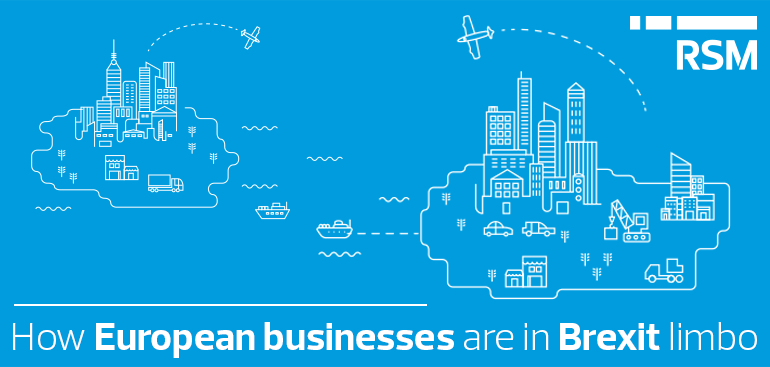
The UK’s imminent departure from the EU brings with it a host of questions: will new trade tariffs hinder supply chains? How far will the UK’s regulatory framework diverge from the EU? Will the UK’s tax regime change significantly? How much will currency volatility impact top lines?
Globally-ambitious European businesses are having to navigate these questions during an ever-changing Brexit process defined by uncertainty at every stage. It is a difficult task to run risk assessments, diversify investments, adjust suppliers or alter your tax planning with little clarity on future relationships and regulation.
The UK’s decision was made on 23 June 2016, over two and a half years ago. And, while many of the implications of this decision are still unclear, we do know that the implications will differ based on the type of business you run. Businesses that import from the UK and operate “just-in-time” supply chains may have to rethink their procurement strategies in case of border delays. Firms that send company representatives to visit UK clients will have to account for different entry barriers and potentially disrupted transport links. One issue that does exist for all businesses that trade with the UK is legal uncertainty. If the UK and EU legal systems diverge post-Brexit, EU businesses will need to pump resources into deciphering this changing regulation but also altering their processes and strategies accordingly.
Across RSM’s European network, many of our clients have asked about the ramifications of a no deal Brexit on a plethora of different business functions. Advice on VAT, for example, will differ greatly in the event of a no deal scenario, while the potential for divergence on issues as critical as data protection is a serious concern.
There are also Brexit related opportunities for the EU. Not only does the union remain one of the largest trading blocs in the world despite the departure of the UK, it continues to make trade deals with other nations – including the deal recently struck with Japan. We’ve seen that some cities, including Brussels and Frankfurt, have been positioning themselves as attractive locations for financial services giants to set up their European bases outside of London.
The EU and UK authorities are working to secure the best deal for their respective business communities. Unfortunately, compromise has not been found and we are seemingly hurtling towards a cliff edge, but even in uncertainty there is plenty you can do to help prepare. You can diversify your client base, reduce the risk in your supply chain, create flexible contracts to negate currency risk and ensure you have the right advisors in place.
At RSM we have faith in the middle market, and we trust them to find their way through these challenging times. Ultimately, these business leaders must remain agile in the face of uncertainty – something we are certain they have the capability to do.








